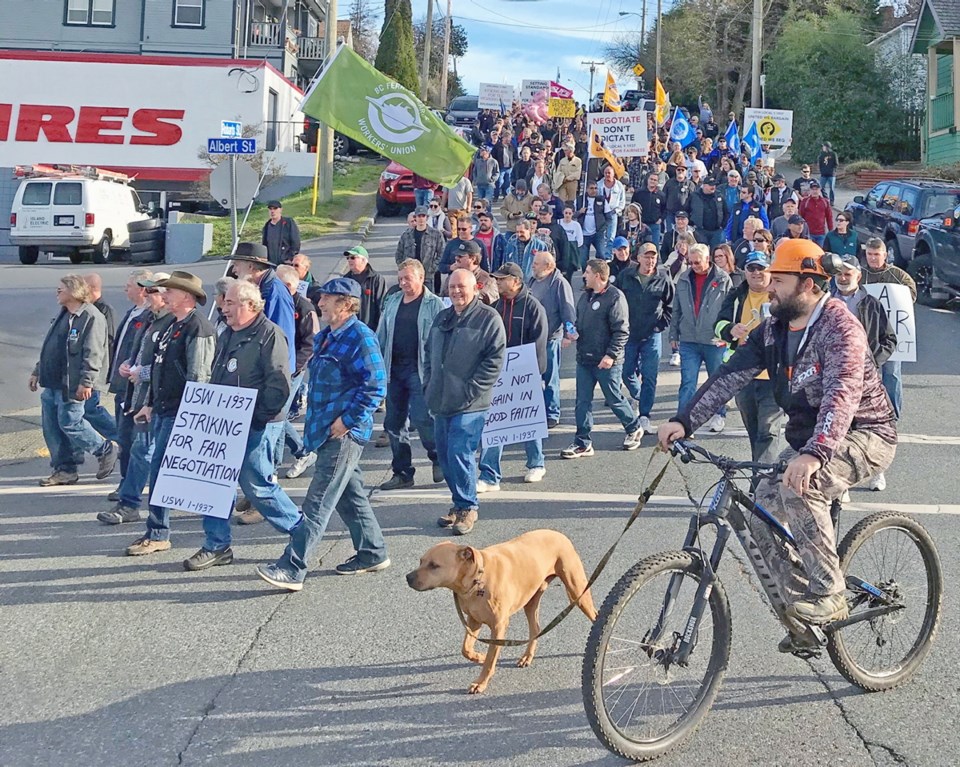Talks have broken off between Western Forest Products and the union representing nearly 3,000 workers on the coast.
After 14 hours of bargaining over the weekend, the United Steelworkers Local 1-1937 informed independent mediators Vince Ready and Amanda Rogers they had rejected the company’s latest contract proposal and a request to return to work while talks resume.
Western Forest Products said in a statement Monday no future mediation dates have been scheduled. “Western tabled a fair proposal with the goal of ending the strike and bringing people back to work,” president and CEO Don Demens said in the statement.
Demens said the company offered a five-year agreement with a $2,000 signing bonus and wage increases of two per cent per year for the first four years and 2.5 per cent in the fifth year.
The union said it wants a four-year deal with raises of three per cent in the first two years and 2.5 per cent in each of the last two.
In a post on its website late Monday, United Steelworkers president Brian Butler accused the company of “game-playing” and said Western Forest Products left the table instead of responding to the union’s last contract offer on Sunday.
“Our offer is aligned with recent forest industry collective bargaining settlements and provides certainty for employees, customers, contractors, and communities.”
Demens said the company’s goal is to “get people back to work, end the strike and enable us to supply products to our customers. To achieve this goal, we asked the local union bargaining committee to allow employees to return to work while they ask membership to vote on our proposal.”
The union responded by saying the proposal by Western Forest Products is a “desperate attempt and has failed to undermine the solidarity of members.”
Several Island mayors penned a letter last week imploring both sides to reach an agreement as the strike is having an economic and social impact on many of the Island’s forestry reliant communities. The mayors cited a trickle down effect in their towns, including businesses feeling the effects of less spending, houses put up for sale and the pressures on local food banks as the strike drags on.
The union has also rejected the company’s request to go to binding arbitration.
The strike started on July 1 and closed all of Western’s manufacturing and timberlands operations in British Columbia, affecting 1,500 of the company’s hourly employees and 1,500 employees working for the company’s timberland operators and contractors.
Western’s shares lost four cents or 3.1 per cent to $1.23 Monday on the Toronto Stock Exchange.



